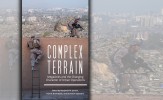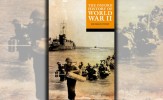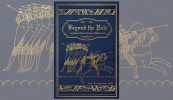Search
Using the filters to the left, click your selection, it will become bold and filter the results, click it again to remove that filter.
Introduction Quantum technology [1] has the potential to disrupt the modern battlespace and fundamentally change the way Army trains and fights. Comprehending the impact of these technologies to the integrated force requires an understanding of their scale and potential influence, application, suppliers and how these three factors interact. Technology Readiness Levels (TRLs), a summary of which is shown in Annex B, provide a standardised scale of technological maturity from concept through to employment. …

Major Chris Hall is an infantry officer with experience across regimental and headquarters roles. He has commanded teams on Operation RESOLUTE and Operation HIGHROAD, and over 2021-2022 led experiments with uncrewed aerial and ground systems in a littoral environment. His most recent role in Army was managing the Landing Craft – Medium within the Littoral Manoeuvre Program. He holds a Bachelor of Business Administration (Human Resources) from Southern Cross University and a Master of Capability Management …
Megacities and the Changing Character of Urban Operations Marine Corps University Press , Quantico VA, 2019, 400 pp ISBN 978016095344 Editors : Benjamin M. Jenson, Henrik Breitenbauch, and Brandon Valeriano, Reviewed By : Shaun Cameron The Gray Scholars Program [1] was developed by the Marine Corps University as a student-led initiative to explore the future of war and encourage debate within the professional military education community. The second cohort of students participating in the program …

Shaun Cameron is an Australian Army Reservist and Australian Public Servant. He has experience working in the Department of Defence and the Department of the Prime Minister and Cabinet. Prior to joining the public service, he worked in Southeast Asia for several years and has postgraduate qualifications in international relations, national security, and public administration. … Shaun …
Captain Gavin Cookman is a RAEME Officer working in RICO’s Quantum Technology Cell as a reservist. His previous service includes both full-time and reserve service across FORCOMD, SOCOMD and AHQ. … Gavin Cookman …
Oxford University Press , 2023, 467pp Paperback ISBN: 9780192884084 Editor : Richard Overy Reviewed By : Martin Crotty The publishing market is already saturated with books covering World War II. Library shelves, both public and private, groan under the weight of bulky and learned works from the likes of Basil Liddell Hart, Peter Calvocoressi and Guy Wint, as well as Victor Davis Hansen, and in a more popular vein, authors such as Max Hastings and Anthony Beevor. Throw in the thousands of more …

Associate Professor Martin Crotty teaches history at the University of Queensland. He has researched and taught a number of aspects of war and society, particular regarding militarisation, memory, and veterans. … Martin Crotty …
Abstract ‘Accelerated Warfare’ describes both the operating environment and how the land force must respond. The changing character of war requires a shift in traditional attitudes towards land force operations and an approach that is unhindered by dated frameworks, in particular the belief in the absolutes of ‘war’ and ‘peace’. This is most apparent in the information environment in which the land force is least comfortable yet can most effectively target decision-making and the will of the people. …
Listed below is a selection from the review copies that have arrived at the Australian Army Journal . Reviews for many of these books can be found online in the relevant edition of the Australian Army Journal : No Clear Flight Plan: Counterinsurgency and Aerospace Power , James Fergusson and William March (eds), Centre for Defence and Security Studies, ISBN 9780978086848, 238 pp. North Korea on the Brink , Glyn Ford with Soyoung Kwon, Pluto Press, ISBN 9780745325989, 249 pp. (Distributed in Australia by …
Designing Military Decision-Making Anew Columbia Air University Press , 2023, 364 pp Paperback ISBN: 9781585663286 Author : Ben Zweibelson Reviewed by: Alice Paton Our military strives to be the best, not just for the satisfaction of a job done well, but to protect our national interests, our society and our mates. We work hard to gain and keep a competitive edge, but what if these efforts are ineffective? In this book Ben Zweibelson, a retired US Army infantry officer with experience in Afghanistan …

